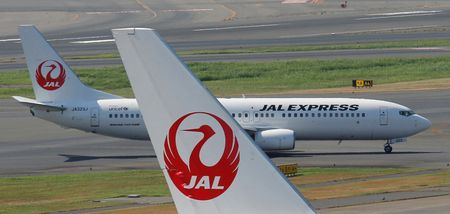By Bernadette Christina and Fransiska Nangoy
JAKARTA (Reuters) – A senior official at Indonesia’s biggest palm oil group said on Wednesday the government was currently drafting a plan aimed at limiting shipments of the edible oil to tame domestic cooking oil prices, remarks the Trade Ministry swiftly denied.
Togar Sitanggang, deputy chairman of GAPKI, told a parliamentary hearing that a plan was already in the works to restrict exports, by as much as 20%. He did not elaborate, or say how GAPKI learned of the information.
“The Trade Ministry is drafting up a plan to limit exports … What we heard is the regulation is being written up,” he said.
His comments came amid calls by lawmakers at the hearing for palm oil producers to meet domestic demand first before exporting.
The world’s top producer and exporter of palm oil has been trying to curtail the rise in domestic cooking oil prices that have climbed about 40% from a year earlier, in line with high global palm oil prices.
Global prices hit records amid demand recovery from major buyers India and China as production in Indonesia and rival Malaysia slowed.
Trade Ministry official Indrasari Wisnu Wardhana, responding to the GAPKI official’s remarks, in a text message to Reuters denied there was such plan.
“So far there are no new rules other than what have been announced by the trade minister,” Wisnu said.
The regulations announced on Tuesday require exporters to obtain shipment approval from Jan. 24 for exports of crude palm oil, used cooking oil and refined, bleached and deodorised palm olein (RBD palm olein). The rules will apply for six months.
Exporters are currently only required to do customs declarations for shipments.
Prices of palm oil benchmark contract in Malaysia rose as much as 3.2% in early trade on Wednesday in reaction to the Indonesian policy and amid higher crude oil futures. [POI/]
DOMESTIC FOCUS
The Trade Ministry on Tuesday assured there would be no minimum requirement for palm oil domestic sales, or a Domestic Market Obligation (DMO), which some legislators have called for.
The DMO has been a contentious factor in a month-long suspension by Indonesia of thermal coal exports that has concerned major coal importers, as it seeks to ensure domestic supply to its power plants.
“It’s only fair. The CPO (crude palm oil) was produced on Indonesian soil, the people of Indonesia have the right to enjoy low cooking oil price,” parliamentarian Andre Rosiade said.
GAPKI chairman Joko Supriyono prior to the hearing said he did not expect export disruption from the permit requirements.
“This is for the sake of improving exports’ orderliness amid the national cooking oil programme to ensure availability and supply security,” he added.
To secure export permits, palm oil companies must declare their plans, attaching sales contract proof as well as their six-month plans for exports and domestic distribution.
GAPKI data presented at the hearing showed it estimated 2021 CPO production at 46.89 million tonnes, relatively unchanged from 47 million tonnes output in 2020. GAPKI also estimated domestic palm oil consumption for food at 8.95 million tonnes last year.
Meanwhile, the government starting Wednesday set a single-price for cooking oil at 14,000 rupiah ($0.9746) per litre for household consumption and small businesses, about a third lower than current retail price.
The government will maintain that by providing 7.6 trillion rupiah in subsidies for 250 million litres of cooking oil each month for six months.
($1 = 14,365.0000 rupiah)
(Reporting by Bernadette Christina Munthe and Fransiska Nangoy; Editing by Martin Petty)











